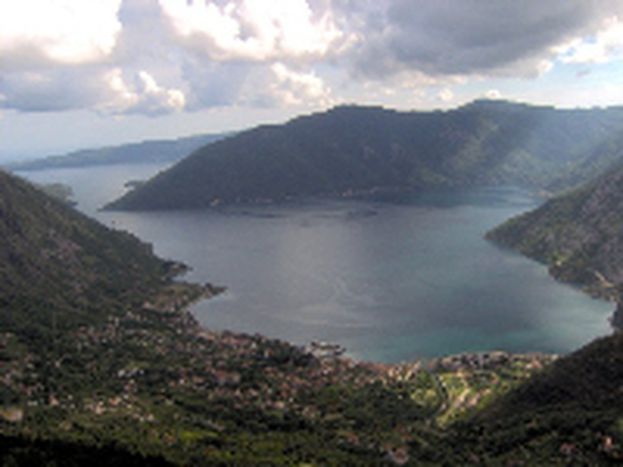
Montenegro goes on sale
Published on
For years the unspoiled beauty of Montenegro used to be the best kept secret in Europe. Now the sights of old Venetian squares, spectacular mountains, bays, sandy beaches are once more a favourite destination for globe-trotters around the world
Wild and often unkempt Montenegro is now attracting second home buyers, desperate to for a slice of new Riviera. However, behind the tourist hype and second home purchases lies a different reality. Shabby resorts, decaying infrastructure, illegal constructions that are ruining the landscape, sewage problems and water shortages that can make the most perfect-sounding holiday a hellish experience.
The aftermath of the war
On holiday in Montenegro, Belgrade resident Natasa is dissatisfied with the water shortage.
“This is disaster. We have water between 11am to 15 pm and later on in the night. What kind of tourist place is this, when I have to run with my baby from the beach, in order to give her shower?” she asks.
It has been a long haul for Montenegro back from the sunny days of the 1980s, when Montenegro was one of the region's most popular tourist destination, earning an annual revenue from tourism of around 79 million euros. But then warfare, and the siege of nearby Dubrovnik, in which Montenegrin soldiers took part, changed everything.
The tourists went away and by the early 1990s during the wars that brought about the disintegration of former Yugoslavia. The slump in income and the influx of refugees had a devastating impact on the hotels, many of which became temporary homes for refugees. At the same time, a collapse in planning regulations led to a surge of illegal constructions along the coast.
Speedy recovery ahead
The government has started to tackle the problem of decaying infrastructure, investing millions of euros in the reconstruction ofroads and transport facilities. Airports in Podgorica and Tivat have been modernised at a cost of 22 million euros, improving connections with European centres.
The biggest changes have occurred, however, in the property market. Russians, English and Irish have been purchasing their second homes for a couple of years now. The prices of the houses on the coast have doubled since last summer and they are continuing to rise - and locals are happy to oblige for now.
Serbian and Montenegrin media report that Katherine Zeta Jones and Michael Douglas, who are on holiday in Montenegro, are eyeing a house in ancient town on Perast, in Boka Kotorska bay. It is said that Roman Abramovich, a Russian billionaire owner of the Chelsea FC, is buying a little peninsula off Bigovo bay.
According to Goran Radonjic, executive director of the estate agency Montenegro Property, buyers are attracted by the area’s natural beauty and low land prices when compared with Croatia.
Locals are disgruntled with the current sell off
“It is already impossible for an ordinary Montenegrin to buy a home next to the sea”, laments Dragana a local caffe owner from the old Venetian coastal town of Kotor. “Our children will have problems buying their property and will have to live in the mountains.”
Others are forced to sell their property and move to cheaper accommodation in order to fill holes in their family budgets.
Bozo, an elderly pensioner from Stoliv, village boasting of having the richest olive grove in Boka Kotorska bay, was forced, due to difficult financial situation, to sell the land that belonged to his family for hundreds of years. He used the money to buy flats for his two children.
“I was not happy to sell the land belonging to my ancestors. At the end the only thing left is the old small family house for my wife and I.”
Vjera, one of the few locals left in Perast, says that people are selling old Venetian palaces, not because they want to “but because they can buy five or six apartments elsewhere for the price”.
Mira, en elderly woman from the old town of Kotor, who also sold her old-fashioned apartment in the town, is concerned that the city will be totally empty in the winter, once the summer season is over and foreigners go home.
I am worried that the old Mediterranean spirit of my town will disappear and with it the tradition of hundreds of years, she said.
Foreigners move inland
In the meantime, second home purchasers are moving to more exotic locations. Having bought the property around the coast, several-hundred-year-old stone farm houses, destroyed by age, are now the latest fashion. Their remote location in the mountains with no access roads is no deterrent.
“Last week I showed an isolated house with no access road to an English lady”, says Goran, of Montenegro Property. “When I asked her how she was planning to get to her future home, she answered she would get a donkey.”



